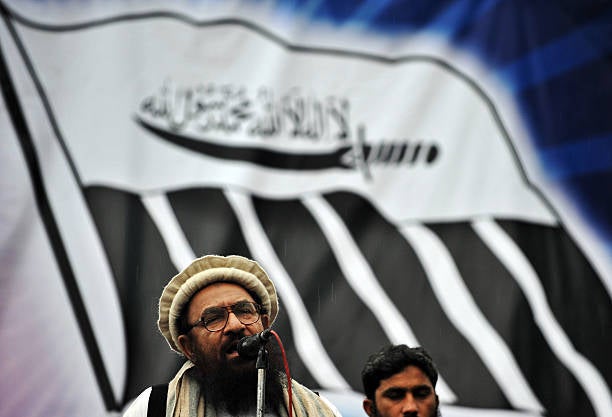UN blacklists Pakistan’s Abdul Rehman Makki, brother-in-law of LeT chief Hafiz Saeed, as global terrorist
China had placed a ‘technical hold’ on listing last year, blocking India-US joint move

The UN Security Council has listed Pakistan-based Abdul Rehman Makki, brother-in-law of Lashkar-e-Taiba (LeT) chief Hafiz Saeed, as a global terrorist.
The development comes after China blocked the India-US proposed listing since June 2022, placing a “technical hold” on the proposal.
On Monday, China was forced to give up the “technical hold” on Makki after 14 out of 15 members voted in favour of the listing.
Makki, 68, has been added to UNSC’s global terrorist under its ISIL (Da’esh) and Al-Qaida Sanctions Committee.
Individuals and entities in the list are subject to the assets freeze, travel ban and arms embargo, the UN said in a statement.
Providing a narrative summary of reasons for his listing, the UN Sanctions Committee said Makki and other Lashkar-e-Toiba (LeT)/Jamaat-ud-Dawa (JuD) operatives “have been involved in raising funds, recruiting and radicalising youth to violence and planning attacks in India, particularly in Jammu and Kashmir (J&K)”.
It added that he was wanted by the Indian government for “participating in the financing, planning, facilitating, preparing, or perpetrating of acts or activities” for Lashkar-e-Toiba.
China, an ally of India’s neighbour Pakistan, had placed a “technical hold” on a joint proposal by India and US to list Makki to list him as a global terrorist.
India and the US condemned China’s attempts to block the move as “extremely unfortunate”.
“The practice of placing holds and blocks without giving any justification must end. It is most regrettable that genuine and evidence-based listing proposals pertaining to some of the most notorious terrorists in the world are being placed on hold,” India’s ministry of foreign affairs said at that time.
Pakistan has banned and outlawed more than 65 militant groups, including Jaish-e-Mohammad and Lashkar-e-Taiba. However, India has accused Islamabad for providing safe haven to terrorists that carry out terrorist activities in India, an allegation denied by Pakistan.
India’s former ambassador to UN TS Tirumurti called it a “big success for Indian diplomacy”.
China has formed closer ties with Pakistan over recent years as Delhi’s relations deteriorated with Beijing since the Ladakh border standoff of 2020. Beijing is financing tens of billions of dollars’ worth of megaprojects in the economic crisis-hit Pakistan as part of the China-Pakistan Economic Corridor.
Makki, deputy chief of LeT, has been under US sanctions since November 2010, and a bounty of $2mn was announced for information about him.
He is the brother-in-law of Hafiz Saeed, the founder of LeT blamed by India and the US for the 2008 Mumbai attacks in which 166 people, including American citizens, were killed.
Delhi has accused Makki of playing a leading role in prominent attacks in India, including 26/11 Mumbai terror attack, Red Fort Attack on 22 December 2000 and Gurez/Bandipora attack on 7 August 2018.
Makki, who was born in Punjab Province of Pakistan, was arrested and placed on house arrest in June 2019. In 2020, a court in Pakistan convicted him of terrorism financing and sentenced him to lifetime imprisonment.
Subscribe to Independent Premium to bookmark this article
Want to bookmark your favourite articles and stories to read or reference later? Start your Independent Premium subscription today.

Join our commenting forum
Join thought-provoking conversations, follow other Independent readers and see their replies